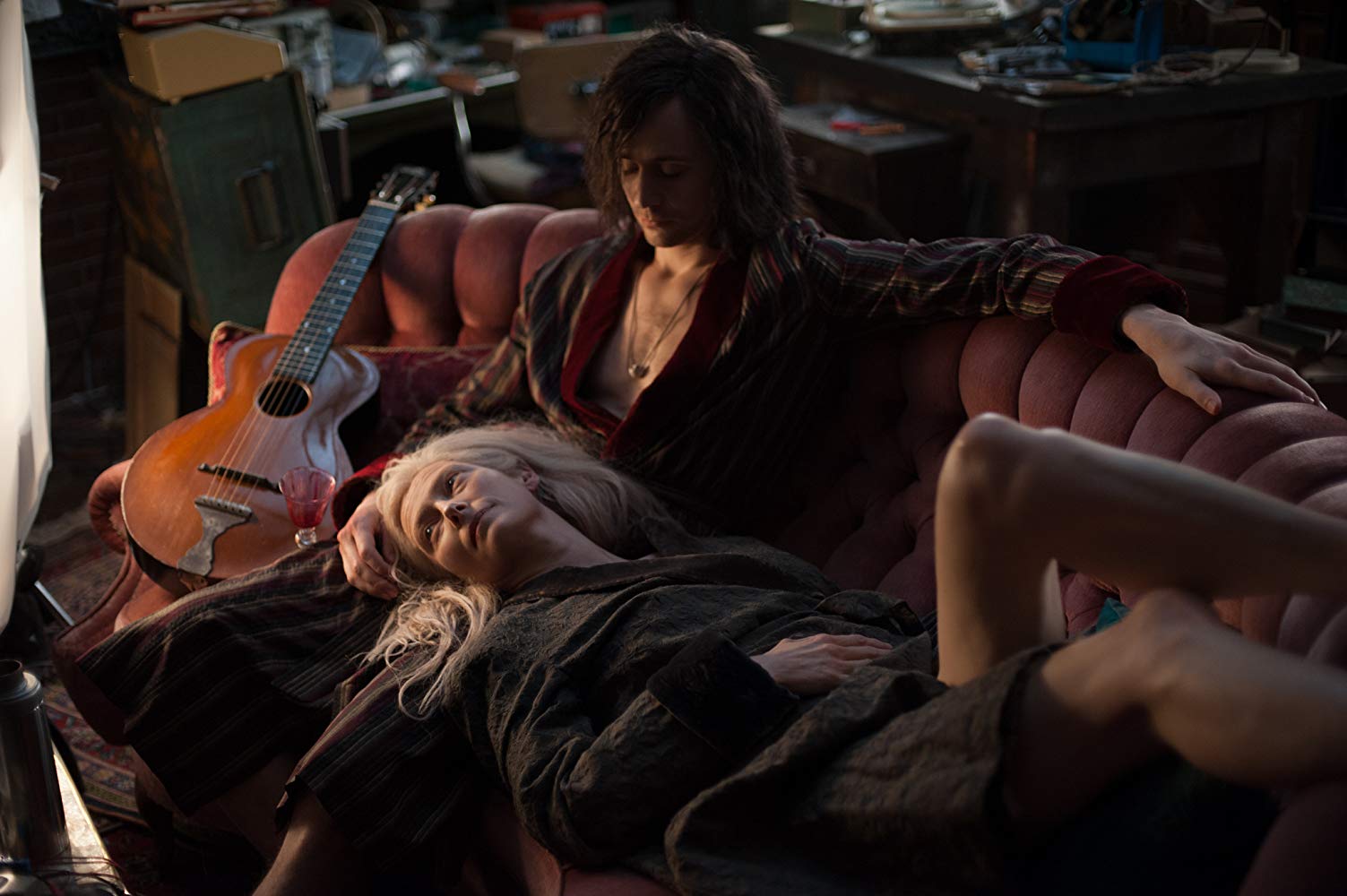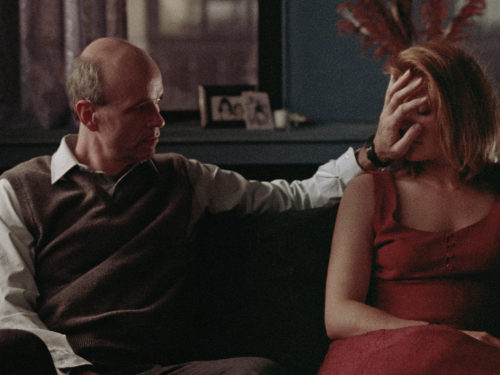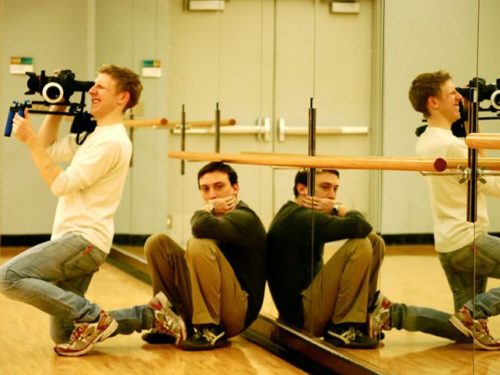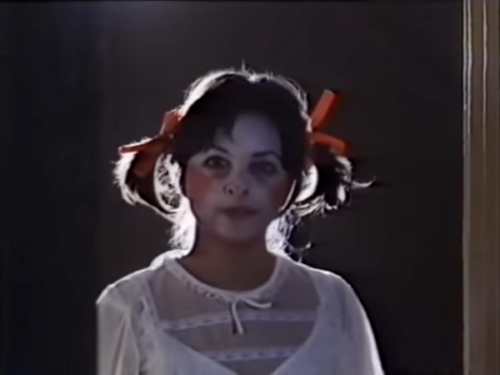Jim Jarmusch’s luscious vampire love story shows eternal cycles of interconnectedness through the eyes of immortal lovers
EVE: Tell me now about entanglement. Einstein’s spooky action at a distance. Is it related to quantum theory?
ADAM: Hm? No, I mean, it’s not a theory. It’s proven.
EVE: How does it go again?
ADAM: When you separate an entwined particle and you move both parts away from the other, even at opposite ends of the universe, if you alter or affect one, the other will be identically altered or affected.
EVE: Spooky.
Art is an act of communion. Through time, space, sensuality, we are all connected. Art brings light to this connection. In canons of cultural lore, one can clearly see layers of collective work from multiple generations. Jim Jarmusch made his contribution to vampire lore with his 2013 romance Only Lovers Left Alive. In this luscious piece of cinema, we get to glimpse eternal cycles of interconnectedness through the eyes of immortal lovers. Adam (Tom Hiddleston) is the quintessential melancholic musician. Eve (Tilda Swinton) is his bright-eyed wife, ever filled with wonder. He lives a life of hermitage in Detroit, while she lives in Tangiers and frequently visits her beloved friend Christopher ‘Kit’ Marlowe — yes, the Marlowe of Elizabethan fame.
How jealous Jarmusch must be of his own characters, with limitless time to ‘devour’ centuries of art. I know I am. I’m jealous of Eve as she pulls volumes from her wall of books, of Adam, as he plays with his instruments and technologies in boundless exploration. In Jarmusch’s golden ‘rules’ of filmmaking (of which the first rule is “there are no rules”), he advises the maker to “devour old films, new films, music, books, paintings, photographs, poems, dreams, random conversations, architecture, bridges, street signs, trees, clouds, bodies of water, light and shadows.” I cannot help but return to this quote and its acknowledgement of the vast depths of creation waiting for us to explore. Only Lovers feels like a reflection of this abbreviated list and its indication of endless worldly treasures. The film’s explicit references to thinkers and artists are plentiful to say the least. There are mentions of Nicola Tesla, Lord Byron, Mary Shelley, Mary Wollstonecraft, Eddie Cochran, Jean Michel Basquiat, Miguel de Cervantes, Ramón de Campoamor, Samuel Beckett, David Foster Wallace, Jules Verne, Franz Kafka, Lorenzo Ghiberti, Oscar Wilde, of course, Albert Einstein and Christopher Marlowe, among many, many more creative ancestors.
The film itself is an intricate craft of rich layers of language, set, texture and color. This is a movie you can feel, smell, reach out and touch. It is a tapestry of silks, velvet, fringe, wires and industrial ruins. The meditative qualities of key scenes urge surrender to the experience, urge imagination to leap across any gap between you and the work you’re taking in.
The film begins with a slowly turning view of the stars, round and round, as trance-like music lulls you into the first scene, which begins with a bird’s eye view of a record player turning round and round on its table. The song “Funnel of Love” plays as we’re shown a swirling shot of Eve. The image goes round and round, rippling on the edges, then cuts to a similar swirling shot of Adam. It feels like the filmmaker’s attempt at hypnosis.
Here, in this atmosphere curated especially to keep our attention, we are presented with romantic portraits of communion. In the first scene, it appears as though the lovers are listening to one song from opposite sides of the world. In another, it seems as though Adam is making music in Detroit for Eve to dance to in Tangiers. When the three old friends ritualistically drink blood from small glass goblets, they appear to share the moment of pleasure, although they are each alone in their homes. They do so with such presence that euphoria spreads throughout their bodies, and their lips curl into wide smiles that reveal their blood-stained fangs.

Analogies to drug use could be gathered from this and numerous scenes of Only Lovers; however, whether the blood that nourishes these vampires also intoxicates them is not the significant facet of these scenes. The devout experience of pleasure and sensation is what takes prominence here. The characters are fully immersed in what they taste, take in and experience. Moreover, this complete engagement in that moment reinforces the connection they feel with their loved ones across space and time. The film upholds the value of beauty, pleasure and wonder that flourishes in mindful engagement.
A clear delineation between mindful pleasure and mindless consumption is drawn when Eve’s sister Ava is introduced. We meet her after she’s entered Adam’s home without permission, something his wife did not even do. Eve chastises her for this thoughtless approach. They find her on the couch, listening to Adam’s music.
EVE: You do know that it’s very bad luck to cross a threshold without being invited.
AVA: Are you still afraid of garlic?
EVE: I’m not talking about myths, here, Ava.
ADAM: You know, it’s also bad luck to listen to someone’s private music without invitation.
Upholding vampire lore as a traditional belief rather than a supernatural rule of physical capability suggests that in this mythology, an invitation is nothing more than a matter of respect. To wait until you are invited into someone else’s space appreciates the fact that your energy, your self, your actions have an effect on others.
Ava continues to ignore the impact of her behavior on others for the rest of her stay. She comes in from LA, which Adam calls ‘zombie central.’ During her visit she guzzles the couple’s blood supply, behaves recklessly out on the town and before long, gorges herself on Adam’s only friend, killing the human and leaving Eve and Adam in danger of a murder investigation. In her actions we see how mindless consumption can become a matter of life and death. This theme is repeated within interpersonal relationships in several other scenes.
More significantly, it is echoed on a larger scale as people have contaminated their own blood to the point where food is scarce for any vampire. This presents the idea that what we do to ourselves, within ourselves, has a ripple effect throughout the world. Here, our blood being a food source for the protagonists of the film magnifies the humans’ damage to the ecosystem. Only Lovers offers allegory to the rippling damage of humankind’s mindless consumption.
Adam obsessively complains about zombies and, in his own way, he is becoming one. To him, the term ‘zombies’ encompasses the majority of humans over the last few centuries. He blames ‘zombies’ for his own misery. Before she ventures to Detroit, Eve video chats Adam from Tangiers. She asks him why he looks so tired, what’s wrong.
ADAM: It’s the zombies and the way they treat the world.
I just feel like all the sand’s at the bottom of the hourglass or something.
We are faced with the daunting consequences of human recklessness each and every day, which makes Adams’s concerns a relatable issue. This makes Eve’s reaction all the more powerful.
EVE: Time to turn it over then.
She is the opposing force of action, engagement, wonder and optimism to his pessimistic inertia and depressed fatigue. She continues:
EVE: Oh my liege and lord, we’ve been here before, remember? And you missed all the real fun like the middle ages …

Adam’s fatal flaw lies in his self-obsession and willful dissolution. He shuts himself off from discovering live music that he loves because he is obsessed with protecting his own identity. He puts himself above the mortals in the way he speaks of them. In these statements, his vampirism becomes analogous to bloated self-importance. He simultaneously sees himself as being overly significant and completely abandoned. He laments the ego-centered celebrity culture, valuing the art over artist. Yet, he gives power to the idea of celebrity when he allows his fear of it to paralyze and isolate him and his work.
Marlowe, who in this world is the true Shakespeare1, compares Adam to his iconic character Hamlet.
MARLOWE: I wish I had met him before I wrote Hamlet.
He would have provided the most perfect role model imaginable.
Hamlet created a chain of misery with his obsessive revenge, and Adam threatens to do the same by miring himself in pessimism. Adam craves connection, yet lives apart from his wife and friends. He refuses to go out into the city he’s chosen even to experience the music it offers. He sends his music out into the world but closes himself off to what reactions may come from it. When fans approach his house, he writes them off as ‘rock zombies’ instead of seeing the connection his music has formed. Eve questions why he released his new music.
ADAM: I needed a reflection. See if it would echo back before …
EVE: Before what? Oh Adam, you always have the convenience of the zombies to blame when you get low. What about all your heroes?
Adam goes on to talk about how societies throughout time killed and mistreated scientists, thinkers and ignored their “beautiful possibilities”. Instead of focusing on his heroes, he focuses on what the “zombies” did to his heroes. Being obsessed with what is not leaves Adam robbed of what is.
While he blames the zombies for treating the world badly, for the contamination of blood and water, he ignores his own tragic influences. Eve finds a custom-made wooden bullet Adam has procured so that he can commit suicide. She holds his loaded gun to her chest in a dramatic statement of how his actions affect her. He grabs the gun away with supernatural speed.
ADAM: It’s the zombies I’m sick of and their fear of their own fucking imaginations.
EVE: My darling, that’s true.
Meanwhile, just tell me what’s so not frightened about that?
How can you have lived for so long and still not get it?
This self-obsession is a waste of living.
It could be spent on surviving things, appreciating nature, nurturing kindness and friendship. And dancing!
Her attentive presence slowly brings him back to engage with the world. This is charmingly exhibited in a scene where Eve plugs in his unused fridge and makes blood popsicles as “an experiment, something new” and urges him to tell her stories because “you love telling me, I love hearing it.” She inspires him to show her the lasting beauty of his disintegrating urban home and shows her the remnants of the 1920s Michigan Theater that now houses a parking lot. A childlike pride beams in Adam as he shows his wife his off-grid Tesla-inspired generator that powers his home. Later she convinces him to hear live music at a club.
After her sister’s disastrous and murderous visit, the two must flee to Tangiers where they find out their food supply has run dry and that Marlowe is dying of poisoning from contaminated blood. Starving, they stumble the streets at night. They sit in an alleyway, malnourished, having poured their last drop of blood onto their tongues. Adam plays his new lute and they watch a pair of lovers in passionate, lively embrace stumble onto a patio.

EVE: Tell me now about entanglement. Einstein’s spooky action at a distance. Is it related to quantum theory?
ADAM: Hm? No, I mean, it’s not a theory. It’s proven.
EVE: How does it go again?
ADAM: When you separate an entwined particle and you move both parts away from the other, even at opposite ends of the universe, if you alter or affect one, the other will be identically altered or affected. Spooky.
EVE: Even on opposite ends of the universe?
ADAM: Yeah
EVE: (Staring at the couple with hunger)
Well, that’s what we’re thinking? Adam, really. So fucking 15th century.
They are deliciously beautiful though aren’t they?
ADAM: What choice do we have, really?
EVE: We’re just going to turn them though, right?
ADAM: How romantic of you.
Jim Jarmusch set out to create a love story. To me, the true romance of the film is in the power of communion as it ripples through the long lives of these vampiric lovers.
Follow our series of The Best of the 2010s in Film here

Stream Only Lovers Left Alive on Amazon Prime
Follow Snow and Split Tooth Media on Twitter
(Split Tooth may earn a commission from purchases made through affiliate links on our site.)
- There is a theory that Shakespeare’s plays and sonnets were possibly written by multiple contemporaries using the false identity of William Shakespeare. Often these theories present Christopher ‘Kit’ Marlowe as one of the possible authors.




